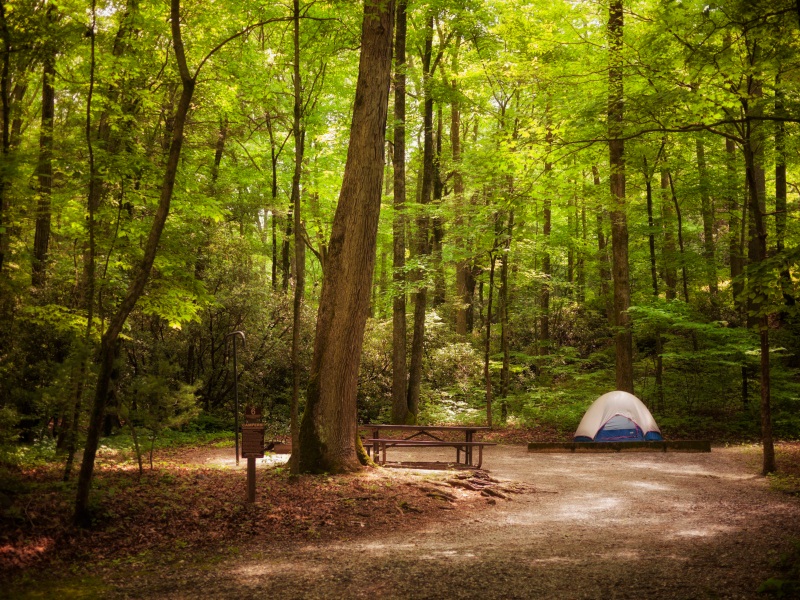
As Washington fights the battle of the budget, outdoor sportsmen and recreationists of all types stand to be affected by big cuts in federal spending.
Throughout government, agencies are experiencing and projecting the results of these actions. For example, Independence Hall in Washington, D.C., which holds the Liberty Bell and other important historical artifacts, is going to cut its hours, resulting in an estimated 43,000 tourists not seeing the bell and other heritage treasures this summer, according to the National Park Service.
Some of the cuts that will directly affect outdoor sportsmen include:
- The U.S. Fish and Wildlife Service has been told to expect a 5.1% budget reduction.
- The U.S. Forest Service (USFS) is expecting a sequestration cut of $134 million; $42 million below the calculated 10-year average of fire suppression. The USFS expects reduced operations at campgrounds, visitor information centers, and offices, and thousands of private sector jobs in rural communities also will be lost due to a reduction of recreation opportunities. The agency could close up to 670 public developed recreation sites out of a total of 19,000 sites, such as campgrounds, picnic areas, and trailheads; a decrease of 35 sworn law enforcement officers. Timber volume sold may be reduced from 2,800 million board feet proposed for FY 2013 to 2,379 million board feet.
One positive note is that the Bureau of Land Management (BLM) is hiring the same number of temporary fire suppression people as last year. However, that’s the exception, not the rule.
Okay, this is a warning to plan your outings ahead of time, but it’s also an opportunity for some folks to pitch in and help keep things running. Early retirements are one consequence of sequestration cuts. Another is that some people will be out of their jobs. Any life change comes with challenges. Unplanned retirement and employment are stressful. If you are going to lose your job by choice or not, and you have the ability to take some time to cut stress, or you are financially stable but would like to see that parks, campgrounds, and wildlife refuges are not closed, I have a suggestion: VOLUNTEER.
Especially in hard economic times, people want to take camping vacations in the 175 national forests and grasslands across the country. Many of those sites are manned by volunteer hosts. Duties vary, but generally, a volunteer Forest Service campground host/hostess provides information and assistance to campers, monitors campgrounds, and performs light maintenance duties. In turn, volunteers receive a free campsite and, sometimes, some minimal monetary assistance. Although the greatest need is during the summer, many national forests and grasslands in the Southern and Southwestern states are open to campers year-round.
If you are interested in becoming a United States Department of Agriculture Forest Service host or a volunteer for other public service projects, see the “host” section on the U.S. National Forest Campground Guide website, which also has a comprehensive guide to developed campgrounds in national forests and grasslands.
The Forest Service, however, is not the only agency who welcomes volunteers. Doing some Internet research, I located a number of websites for federal and state agencies who want and need volunteer hosts.
Federal
- Federal agencies state by state for the entire country: http://www.volunteer.gov/gov/
- BLM Alaska: http://www.blm.gov/ak/st/en/fo/gdo/Volunteer_Campground_Host.html
- National Park Service, Lake Mead: http://www.nps.gov/lake/supportyourpark/volunteer-opportunities.htm
- Forest Service, Pacific Northwest: http://www.fs.usda.gov/detail/r6/jobs/volunteer/?cid=stelprdb5304736
- U.S. Army Corps of Engineers: http://www.swf-wc.usace.army.mil/lewisville/Volunteer/volops.asp
- Military Campgrounds and RV Parks: http://www.militarycampgrounds.us/forum/23-military-campground-camp-host-positions/7787-looking-for-campground-host-position
States
- State agencies in general: http://www.happyvagabonds.com/Jobs/Volunteer-Camp-Host-In-State-Parks.htm
- Alaska: http://dnr.alaska.gov/parks/vip/hostlist.htm
- Georgia: http://www.gastateparks.org/volunteer/hosts
- Florida: http://www.floridastateparks.org/getinvolved/volunteer.cfm
- Idaho: http://parksandrecreation.idaho.gov/activities/volunteering
- Michigan: http://www.michigan.gov/dnr/0,4570,7-153-10366_10871-27524–,00.html
- Virginia: http://www.dcr.virginia.gov/state_parks/camphost.shtml
And, of course, if you have a dream place you want to visit this summer, contact them directly.
Additional benefits
There is an additional benefit to volunteering as a host/hostess at a campground or performing service for natural areas. Research has shown time and again that being in nature provides significant physical, mental, and emotional benefits to humans.
So, by becoming a volunteer, not only do you give yourself a chance to reduce stress in your life, enjoy natural beauty, save some money, maybe enjoy some great fishing, and meet some great people, but by helping keep the parks open, you make it possible for thousands of others to not be deprived of the benefits of contact with nature, thus spreading health and happiness which we all need, especially in tough economic times.
Hippocrates, the father of modern medicine, who reputedly lived to be 109, counseled that “Nature is the cure of all illness.” That dude knew what he was talking about.
Image copyright iStockPhoto/Marilyn Nieves

 Your Privacy Choices
Your Privacy Choices
 The
The